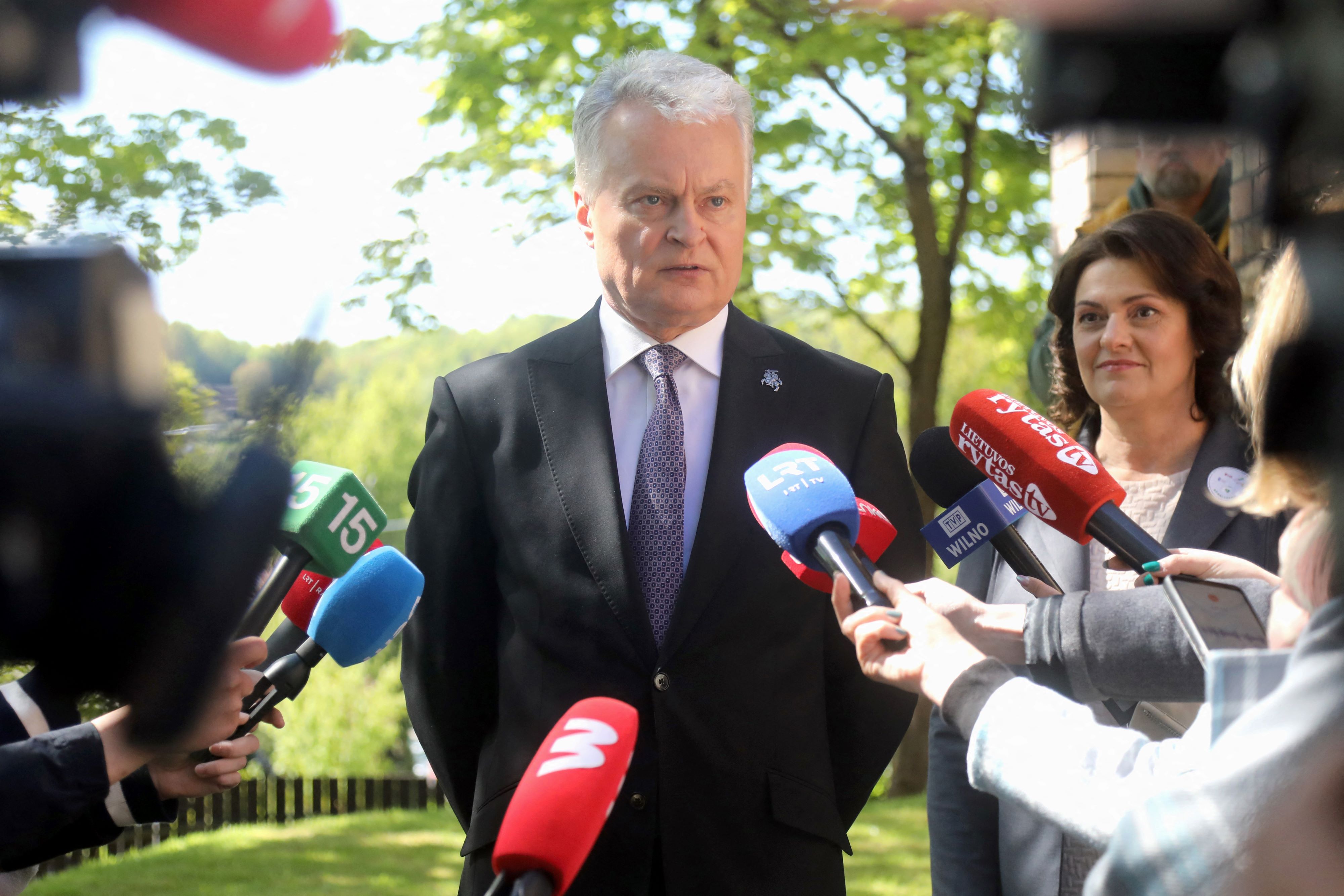
VILNIUS - Incumbent President Gitanas Nauseda and Prime Minister Ingrida Simonyte are poised to advance to the second round of Lithuania's presidential race, according to preliminary results of Sunday's vote.
The latest data announced by Lithuania's Central Electoral Commission showed Nauseda led with 44.10 percent of voter support, while Simonyte was second with 19.86 percent.
Lithuanians also voted on Sunday in a referendum on amending the constitution to allow dual citizenship
Neither Nauseda nor Simonyte secured the presidency in Sunday's first round, falling short of the 50 percent threshold, and declared their advancement to the runoff.
READ MORE: N. Macedonia's VMRO-DPMNE won parliamentary, presidential elections
The runoff is set for May 26.
"I am ready to make a strong push for victory in the runoff, and I think I will succeed in doing so," Nauseda told reporters early Monday.
"My key goal was probably to make it to the runoff, and I think I have achieved it," Simonyte told the media.

Ignas Vegele, a lawyer and candidate for the presidency, announced that he did not make it to the second round of the elections.
Lithuanians also voted on Sunday in a referendum on amending the constitution to allow dual citizenship. According to the latest data from the Central Electoral Commission, 1,396,828 voters, or 59 percent of the electorate, participated in the referendum.
Of these, 1,014,304, or 73.9 percent, voted in favor of the change that would allow dual citizenship, but the required vote tally fell short. To pass, half of the available electorate of 2,385,234 must vote in favor.



